|
In 1988, Coretta Scott King spoke publicly about the tensions as well as the commonalities between her husband, Dr. Martin Luther King, Jr. and Malcolm X. The interview was for the documentary series Eyes on the Prize II, a retrospective look at the civil rights movement which aired on PBS in 1990. In the interview, Coretta describes the one time she had met Malcolm X and what he had said to her. His words surprised Coretta, and in her account of that brief interaction, we can catch a glimpse of an alternate timeline in which Dr. King and Malcolm X came to work together in the struggle for Black liberation and civil rights.
The possibility of cooperation between the two great men was more likely than one might think. In the 1960s, Malcolm X began to reject Black nationalism and started to embrace a more expansive, international human rights focus. Meanwhile, Dr. King began to espouse increasingly critical analyses of the US war machine. By the end of their respective lives, both were able to draw the connections between war, racism, and other injustices of the world. It is a deep tragedy that Dr. King and Malcolm X did not have the opportunity to work along with their fully matured political understandings and analyzes of strategy. -- [Interviewer:] Mrs. King, can you share with us some of the points of agreement and disagreement between your husband and Malcolm X? [Coretta Scott King:] I think that Martin and Malcolm agreed in terms of the ultimate goal of the freedom struggle, I don't think there was any difference there. I think it was basically one of strategy. My husband believed that to accomplish the goal of freedom and justice and equality, that it was necessary to use nonviolent means, particularly in a society such as ours where we were ten percent of the population. And he believed finally that nonviolence was the only alternative that oppressed people had in this kind of a society. I think Malcolm felt that people had a right to use any means necessary, even violence, to achieve the goals of their freedom. And I think that was the basic difference. Martin, I don't think, ever spoke publicly against Malcolm in any form. I think Malcolm did against Martin, unfortunately. But that was because Martin was committed to nonviolence, and nonviolence seeks not to humiliate or to depersonalize human beings but to ennoble human beings, human personality. But he never held that against him. They, I think, respected each other. Martin had the greatest respect for Malcolm and he agreed with him in terms of the feeling of racial pride and the fact that Black people should believe in themselves and see themselves as lovable and beautiful. The fact that Martin had a strong feeling of connectedness to Africa and so did Malcolm. I think if he had lived, and if the two had lived, I am sure that at some point they would have come closer together, and would have been a very strong force in the total struggle for liberation and self-determination of Black people in our society. [Interviewer:] Now, you've spoken about your feelings at Malcolm X's death. Do you recall any specific comments or observations or feelings that your husband had at Malcolm's assassination? [Coretta Scott King:] Well, I am sure Martin had similar feelings that I had. I think when I first got the news, I wasn't near him so, you know, usually that's when you get these reactions. Martin abhorred violence of any kind and particularly, you know, assassinations of the leadership, you know, Malcolm, of course, in '65, and Medgar Evers in '63, and in many ways, it was, you know, it's like who was next? And I think in '65 while we were in Selma, that was a time when Martin received numerous threats. And I really feel that he had felt that something was going to happen to him in Selma, that he might be killed in Selma. As a matter of fact, when we were in Oslo, Norway, in December of '64, he talked about the fact that when we went into Selma, which we had planned to do the first of January in 1965 and did, to begin the voting rights campaign, that somebody was gonna get killed. And as we always did in the movement, we would make jokes about these things. I mean, you know, this is the way, you kind of begin to accept the fact, the reality. And he would say to people on the trip, Well, you better have a good time and enjoy yourself, because when we go to Selma, somebody's gonna get killed. And they had already sent people out to talk to the White community, and they came back with, you know, the reports were not very good. So, there was that strong feeling. And then as we were moving in Selma, you know, there was so many threats, rumors of plots of his assassination that took place. And having had Malcolm's assassination to come while he was in Selma, I'm sure it reminded him more of the possibility of his own fate, you know, that ultimate fate. -- We at VPT are already starting to plan some summer events, including the arrival of the Golden Rule in New London, CT in June. As the world’s first modern protest ship and a vessel originally operated by the CNVA, the Golden Rule has strong historical ties to VPT. We at VPT will put on some public events related to the ship in the months before it arrives as well as when the ship is here. To stay in the loop about these events, sign up for our newsletter: http://eepurl.com/Oqf99 — Support Us We commit a significant amount of research and writing to produce A Peace of History each week. If you like our weekly posts, please consider supporting this project with a one-time or recurring donation. Your gift will be used to continue producing more A Peace of History posts as well as the greater mission of VPT. You may type in however much you would like to give; contributions of all sizes are appreciated. Click this link to learn more about what we do and how you can donate: https://www.mightycause.com/organization/Voluntown-Peace-Trust — Source “Interview with Coretta Scott King.” Washington University in St. Louis. http://repository.wustl.edu/concern/videos/fx719r407 (From Left:) Slater King, Robert Swann, Marion King, Fay Bennett in Israel, 1968 In 1969, civil rights activists from the Albany Movement in Georgia founded a farm for Black farmers who had been fired for registering to vote or associating too closely with the civil rights movement. But New Communities, as the farm came to be known, was not just a refuge for Black workers — it was also a test of an ambitious new form of land management: the community land trust.
Naturally, we at VPT have focused a lot on Bob Swann’s important contributions to New Communities since he was a co-founder of VPT’s predecessor, CNVA. (Read about how Bob Swann played a crucial role in the development of the community land trust here). But we must not forget that the first community land trust in the United States was built for and by Black people, and that Bob Swann was just one contributor to the project among many. Below is an excerpt from a 1968 interview with Slater King — a leader of the Albany Movement, a successful businessman, and one of the designers and founders of New Communities. In the interview, Slater King describes the untenable situation for Black people in Albany, Georgia and across the country in the 1960s. Then, King argues that social and political freedom are intimately connected to economic sustainability; when one is weak, the other often fails, too. His urgent language seems to have been effective in attracting greater interest and funding — New Communities, Inc. would be founded less than a year after this interview was conducted. -- Slater King: It was very interesting listening to Mr. Alperovitz about how people all over the country are becoming very interested in controlling their own destiny in the community, and deciding that they want to make decisions themselves without this being done for them. It really made me reminisce as to how my father believed implicitly in the right of individual ownership, and to think I had come to this point to accept the premise of a land trust for blacks and whites in the South. The area that I do come from is in the heart of a tremendous black belt, an area with very, very fertile land. Outside of the delta of the Mississippi, there would be no other area that would have a heavier concentration of blacks in the South in a 50 mile radius, and the area in which I live in. In fact, this was the same area that Dr. Du Bois came at the turn of the century to write the book about the black peasantry who lived there, which is The Souls of Black Folk. This has been one of the most repressive areas in the country where blacks were concerned. We had been interested in being able to take the decisions of our own destiny in our own hands, and out of this came the Albany movement. Our area was one of the first, after the demonstrations by college students, of a real community. A grassroots community, people from all areas, coming together with the students, and attempting through demonstrations and other things to do away with segregated institutions. Many blacks felt that these demonstrations would change the minds of whites. Unfortunately, I never had that sort of optimism. My only interest was in reference to changing the image, the concept they would have of themselves. That it would make black people feel that they had power to do something about the circumstances and the situation of their lives. I thought about how Dr. Martin Luther King and I, that we were in jail together in the same cell in Albany. We spent many hours in conversation. And my saying to him repeatedly that I had really hoped that out of the demonstrations, out of SCLC coming in to work with us, that there would be a concomitant commitment, carryover, desire on their part to work with us in the economic sector. Because after having people fired from jobs, etc., for our demonstrations, unless I hear some follow through, to give Negros some economic power in the community, then things are left in a worse situation than they were when it started. And he concurred with this, and it is interesting that he would constantly say that “I really wish that I knew more about economics. And that there was more that I could do in this area.” [...]But I merely use this as a base of the importance of us giving Negros who want to change the society an alternative, too. Because they must have some type of economic stability. In our area, thousands of acres of land were purchased by blacks—this was after the end of slavery. But through many ways, through different machinations legally and that all of the machinery of law is controlled by whites in the South, much of the land was taken over. Something else that has interested me is that since 1955, as a real estate broker, that we have actually sold thousands of acres in our firm, where people come back from areas such as Watts in Chicago and New York blacks, to sell the farms that their people have accumulated through very, very terrific efforts. And what has been more disconcerting is often to see members of these families who sometimes would like to stay there, but they are not able to get the money to buy out the rest of them. So it means a farm is purchased, and each time it’s been purchased, it is always been whites who have purchased it. And that the owners have been looking for the highest price that they can get. But what is interesting is, this is just not a phenomenon in Albany, Georgia. That in talking to other brokers over the South, it is a thing that is pretty general. And one reason that I had addressed this thing of a land trust to certain white friends: it seems that the only people who are really working in this area are the black nationalists, who have come into the South, and who are buying large tracts of land. And what is amazing to me is that some blacks come back out of the North, some of them who were service based and who had a fairly secure life in the North, but who liked farming and who were willing to come back to run some of these farms, for these people. [...]But I just use this as an illustration, that I do feel that it is urgent that we try and formulate somehow that land can be purchased by private groups or foundations. That land can be leased to black people, and poor whites if they desire to come. That some option be set up where these same people, they can own their homes, the same as in land trust groups in Philadelphia. The Quaker Project, I believe, where they had one where there’s leased land, and the Federal Housing Authority loaned people to buy the homes. But some method be made where they can borrow money for the improvements. This will be theirs, but the land would be controlled by the land trust. But I think for the country this is important, and I think it’s something that we must give our thoughts to. Thank you. [Read the full interview here. Included in the link is also Bob Swann’s interview directly following Slater King’s. Content warning: the full interview contains some disturbing descriptions of racist violence against Black people and callous descriptions of living conditions for some poor Black people.] -- We at VPT are already starting to plan some summer events, including the arrival of the Golden Rule in New London, CT in June. As the world’s first modern protest ship and a vessel originally operated by the CNVA, the Golden Rule has strong historical ties to VPT. We at VPT will put on some public events related to the ship in the months before it arrives as well as when the ship is here. To stay in the loop about these events, sign up for our newsletter: http://eepurl.com/Oqf99 — Support Us We commit a significant amount of research and writing to produce A Peace of History each week. If you like our weekly posts, please consider supporting this project with a one-time or recurring donation. Your gift will be used to continue producing more A Peace of History posts as well as the greater mission of VPT. You may type in however much you would like to give; contributions of all sizes are appreciated. Click this link to learn more about what we do and how you can donate: https://www.mightycause.com/organization/Voluntown-Peace-Trust — Source King, Slater, Robert Swann, Gar Alperovitz. “Rural Development: Rich Land for Poor.” Center for New Economics. https://centerforneweconomics.org/publications/rural-development-rich-land-for-poor/ Starting at the end of January and going through February 1964, the jail at Albany, Georgia confined several peace activists who had been arrested for violating local Jim Crow regulations. These activists had been traveling down the North American east coast on foot — some starting as far north as Canada — to spread their message of peace and reconciliation to a wide range of communities. The Quebec-Washington-Guantanamo Walk for Peace, as it has come to be known, was intended to complete its journey in Cuba; instead, the Walk was halted by the arrests at Albany. But although the activists did not make it to Cuba, the arrests of the Walk participants — and their subsequent actions in jail, including going on hunger strikes — connected Northern peace activists with Southern civil rights activists in a relationship that continued to deepen through the rest of the decade. (Read about the Quebec-Washington Guantanamo Walk for Peace: part 1, part 2, part 3) The peace movement and the civil rights movement had crossed paths in the past — the first “freedom rides” co-sponsored by the Congress of Racial Equality (CORE) and the Fellowship of Reconciliation (FOR) in 1947 included many World War II resisters — but the intersection of the two movements in Albany in 1964 resulted in one particular innovation that has seen a sort of renaissance in the last few years: the invention of the community land trust (CLT). The CLT model for land reform drew inspiration from other experiments from around the world (most notably India and Israel), but the very first CLT experiment in the United States was pioneered specifically as an offshoot of the civil rights movement. Bob Swann, a prominent member of the Committee for Nonviolent Action (CNVA) which had organized the Quebec-Washington-Guantanamo Walk, advised civil rights activists of the Albany Movement like C.B. King, Slater King, Charles Sherrod, and more as they planned the first CLT. It is a wonder that these civil rights activists — during the mid-1960s when Black confidence in white allies was at a low point — would invite a Northern white man to contribute to their project development. But Bob had shown his commitment to racial justice several times before: working closely with Black war resisters like Bayard Rustin and Wally Nelson during the Second World War; maintaining friendships with Coretta Scott and Martin Luther King, Jr. throughout the 1950s and 1960s, long after moving away; and volunteering to rebuild Black churches destroyed by violent racists in 1962. Moreover, the challenge to local Jim Crow ordinances that the CNVA presented in 1964 had proven the broader peace movement’s commitment to the civil rights cause, too. If it were not for the arrests and jailing of the Quebec-Washington-Guantanamo Walk participants (and their continued civil disobedience in jail), it is possible that the CLT would have never developed in the United States. Below is an excerpt from an interview with Bob Swann about how land reform movements in India and Israel, the peace movement in the United States and internationally, and the specific challenges of the Southern civil rights movement directly influenced the invention and development of the community land trust. We at VPT are already starting to plan some summer events, including the arrival of the Golden Rule in New London, CT in July. As the world’s first modern protest ship and a vessel originally operated by the CNVA, the Golden Rule has strong historical ties to VPT. We at VPT will put on some public events related to the ship in the months before it arrives as well as when the ship is here. To stay in the loop about these events, sign up for our newsletter: http://eepurl.com/Oqf99 — Support Us We commit a significant amount of research and writing to produce A Peace of History each week. If you like our weekly posts, please consider supporting this project with a one-time or recurring donation. Your gift will be used to continue producing more A Peace of History posts as well as the greater mission of VPT. You may type in however much you would like to give; contributions of all sizes are appreciated. Click this link to learn more about what we do and how you can donate: https://www.mightycause.com/organization/Voluntown-Peace-Trust — Source “Bob Swann: An Interview.” Community Economics (Summer 1992), p. 3-5. https://centerforneweconomics.org/publications/an-interview-with-bob-swann/ |
AuthorWrite something about yourself. No need to be fancy, just an overview. Archives
March 2023
Categories |
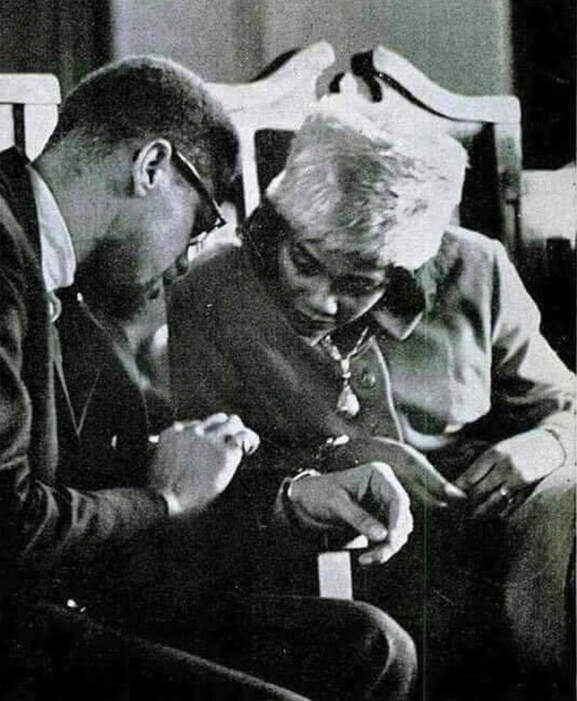
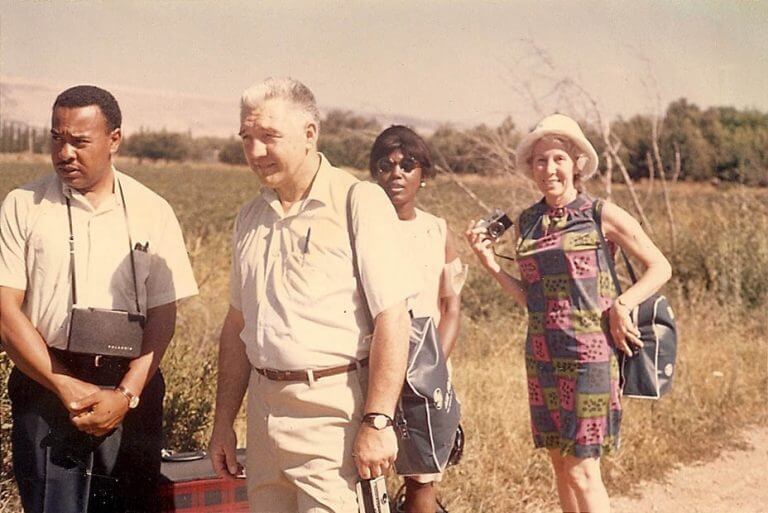
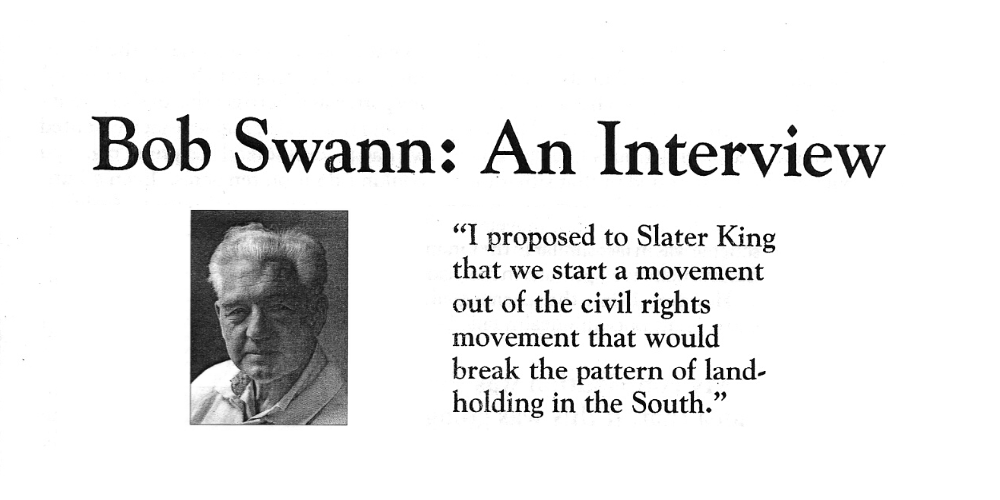
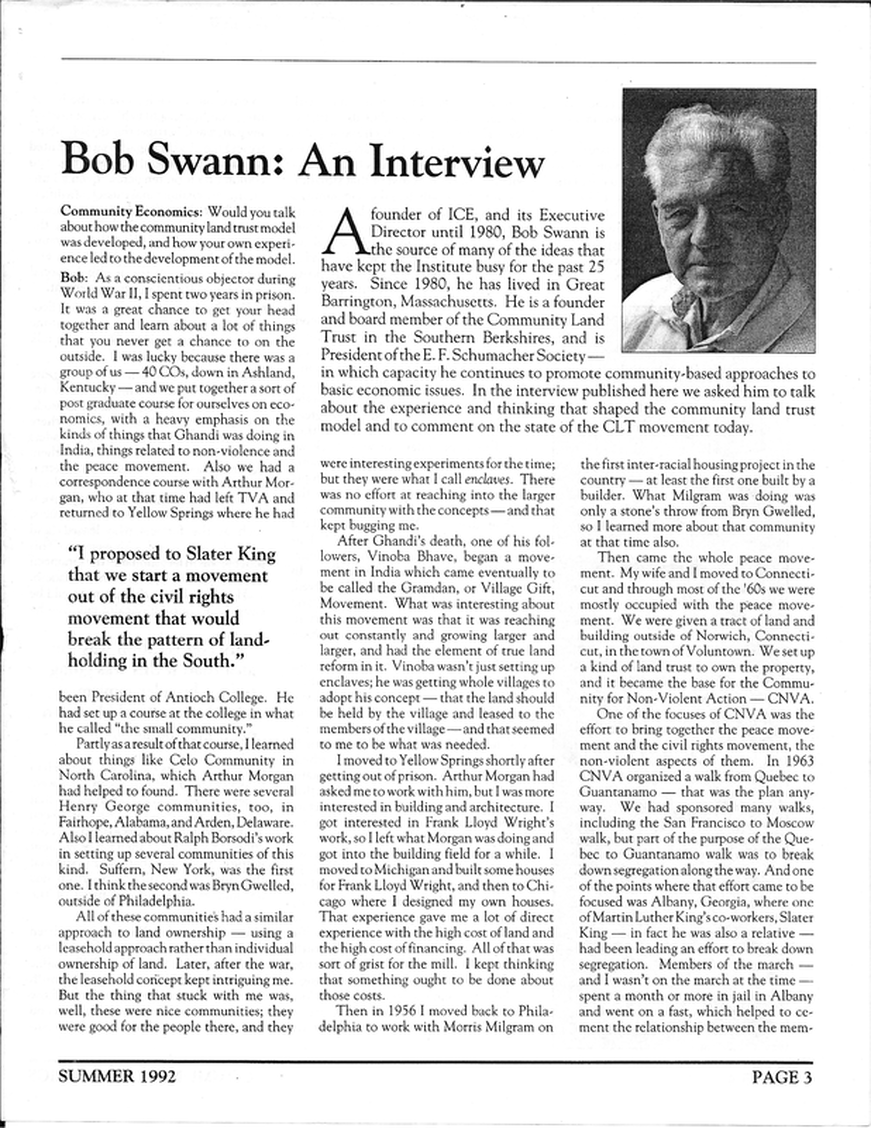
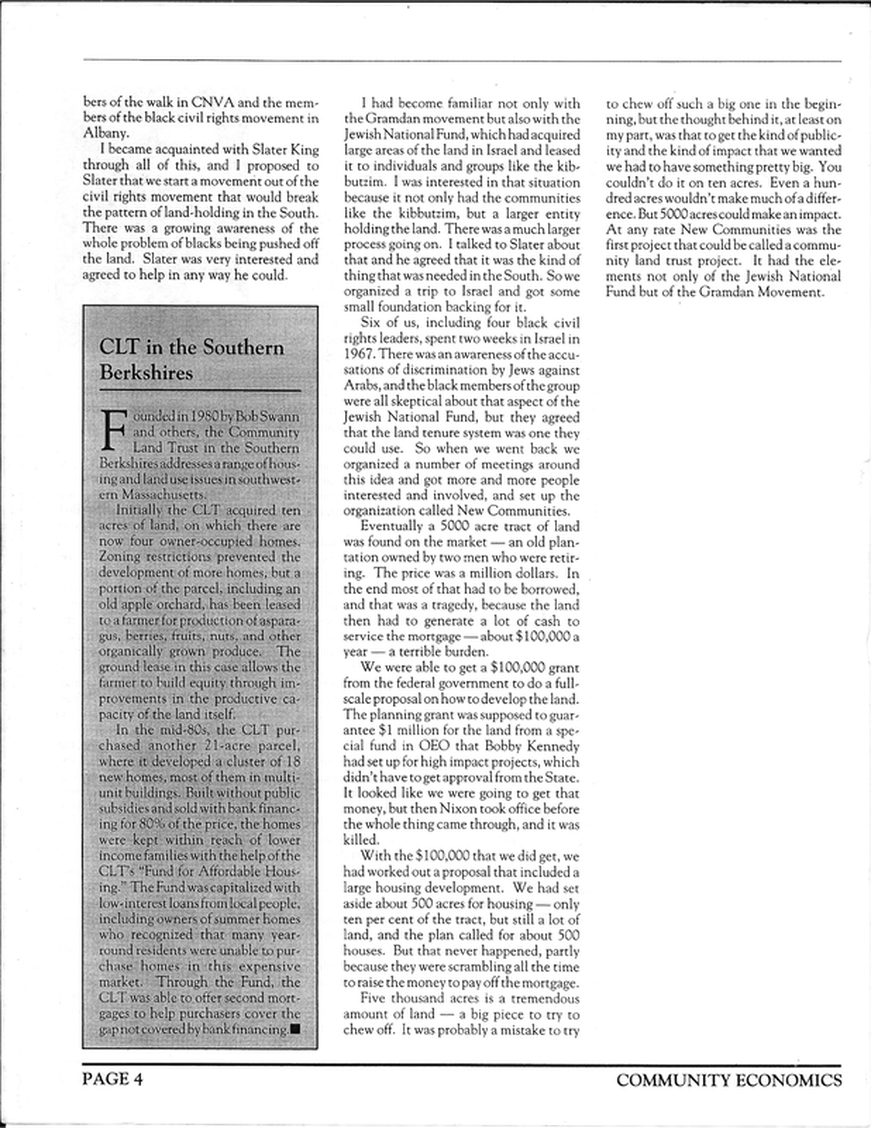
 RSS Feed
RSS Feed